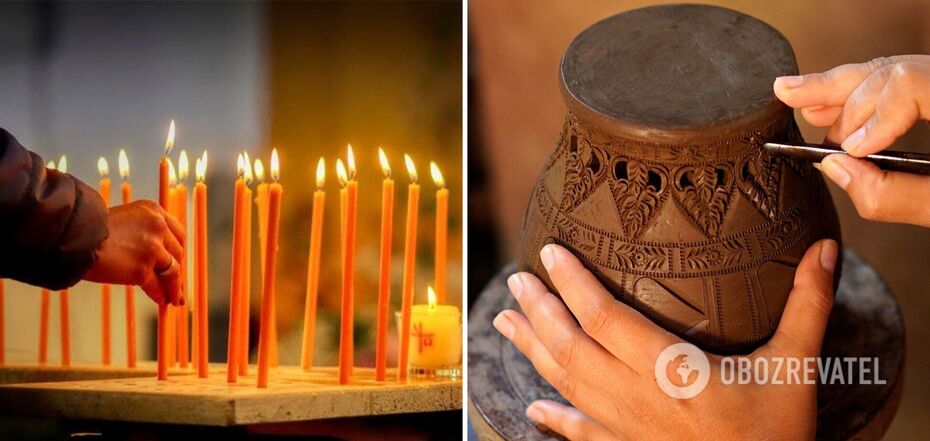Life
What not to do on church holidays: granny's omens
In just a few days, April will come, a month of great church holidays, as Easter falls on it. It's time to remind ourselves of the basic rules and prohibitions that accompany the great Orthodox celebrations.
OBOZREVATEL tells you what people are not allowed to do these days. And what you should do.
Why is it prohibited to work on church holidays?
The tradition of postponing all work on major holidays dates back to ancient, pre-Christian times. Back then, it was believed that on days dedicated to the gods, one should leave off housework and gather in a sacred place to honor the highest powers together.
With the advent of Christianity, this attitude toward holidays persisted. Even in the days of serfdom, peasants were allowed to go to church on church holidays and were given a break from working for their lord.
From a religious point of view, a holiday should be devoted to thinking about God celebrating his mercy and kindness. That's why you should give up your usual activities and focus on the meaning of the holiday, go to church, and communicate with your loved ones.
What kinds of work are forbidden
First of all, you need to give up any hard physical labor. Repair work, cleaning, laundry, work on the ground - everything is prohibited.
You also can't do needlework on holidays. However, at a time when needlework has become more of a hobby than a necessity, this prohibition has been revised. If you enjoy embroidery, knitting, crocheting, etc., you can spend the day doing it.
However, if there was some kind of trouble that needed to be fixed quickly, then you could break your rule for this purpose. For example, you could wash a fresh stain or clean up something spilled or spilled in the house. You can also help another person if they really need it.
What else not to do on church holidays
Since any religious holiday, whether joyful or sad, is intended to purify the human soul, you should not do anything that will tarnish it. That is why quarrels and swearing are forbidden. On holidays, one should not settle any disputes in any form, and one should refrain from even minor conflicts.
The church also disapproves of excessive drinking. Celebrating a celebration with a glass if it is not a fasting day is acceptable, but getting drunk to the point of losing your humanity is not.
Animal killing is not welcome on religious holidays. Therefore, it is better to slaughter cattle, hunt or fish on other days.
What days are considered holidays?
The main holiday in the church calendar is Easter. It is preceded by a seven-week fast, and the celebration is accompanied by a number of other holidays - from the joyful Palm Sunday to the sad Good Friday. The celebrations themselves last for another week, followed by a week of commemoration of deceased relatives.
In addition, the Orthodox have 12 major holy days in their calendar. They are called Twelve Great Feasts. They are celebrated on the following days:
- Christmas (The Nativity of Christ) - January 7;
- Epiphany (The Baptism of Christ) - January 19;
- The Presentation of Jesus at the Temple - February 15;
- The Annunciation - April 7;
- The Entry of the Lord into Jerusalem - the Sunday before Easter (Palm Sunday) - transitional;
- Ascension Day - 40th day after Easter, Thursday - transitional;
- Holy Trinity Day (Pentecost, the Descent of the Holy Spirit) - 50th day after Easter, Sunday - transitional;
- The Transfiguration of Jesus - August 19;
- The Dormition (Falling Asleep) of the Theotokos - August 28;
- The Nativity of the Theotokos - September 21;
- The Elevation of the Holy Cross - September 27;
- The Presentation of the Blessed Virgin Mary - December 4.
The church also calls for Sunday to be honored as a holy day. On this day, one should give oneself a rest and think about the salvation of the soul.
Earlier, OBOZREVATEL told, on what day Easter is celebrated in 2023 and whether it will be a day off.
Subscribe to OBOZREVATEL channels on Telegram and Viber to keep up with the latest news.



























